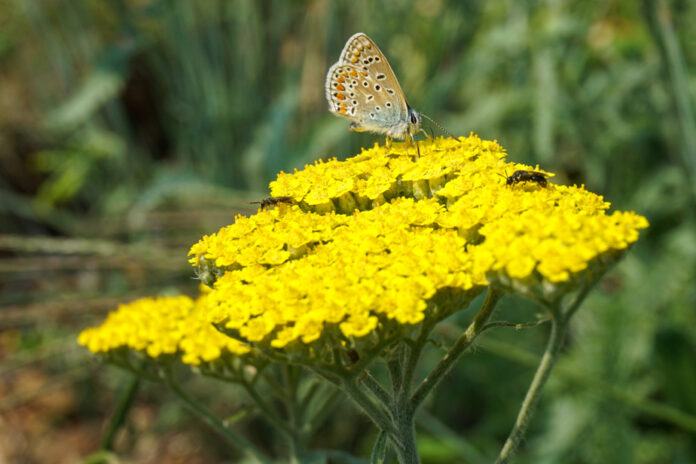With the return of good weather, green ideas are budding in Quebec. In Montreal, the young team of Nouveaux Voisins cultivates landscape art using wild gardens, reminiscent of meadows and undergrowth, for the well-being of people, but also of other species with which they coexist.
After long winter months working on landscaped gardens, Emile Forest and Philippe Asselin, founders of Les Nouveaux Voisins, return to the land to pursue the mission they have given themselves: to strengthen the ties between human beings and other living species. The task is colossal, because all of popular culture needs to be reinvented.
“Our front and back yards have long been seen as rooms in the house,” notes Emile Forest. A bias that has resulted in the maintenance of a lawn for gardens as a gigantic outdoor carpet. This grass, which came from the United Kingdom, was accompanied by a way of life which contributed to its proliferation to the detriment of the biodiversity essential to our existence.
Since 2019, with his accomplice Philippe Asselin, a landscape architect he met during studies in environmental sociology, the town planner has been working to change the order of things through the non-profit organization (NPO ) the New Neighbors.
“The new neighbors are, first of all, the other species that must be integrated into our neighborhoods, specifies Emile Forest. Once we put aside the classic layout of our gardens, poor for biodiversity, and offer something wilder, we ourselves become new neighbors who clash. »
The pandemic has decided them to invest full time in this task, which includes an important educational component and projects carried out with public institutions and individuals concerned about their environment. They already have nearly 30 on their program for this year, and include among their clients the architecture office Microclimat and the Atelier Pierre Thibault, challenged by their regenerative approach to living things.
While the most alarming prospects hang over our planet, these shadow actors want to believe in the strength of individual initiatives. “Nature has this resilience: if we create an environment for it, it will be there,” says Emile Forest.
The benefits of more diversified gardens for our ecosystem are numerous: reduction of heat islands, capture of carbon emissions, water retention, shelter from insects and birds… Another great advantage of these gardens favoring native plants: it you no longer have to worry about maintaining them. An accompaniment, made of specific interventions, for example a watering in the event of strong heat or a cut in spring, is enough.
Each residential project is approached in the same way. The team determines with its customers their needs and the surfaces they wish to return to nature. The courtyards in front of the houses, which are less used, are often given up immediately. The site is then subjected to a rigorous study to identify its characteristics (sunshine, acidity, humidity level and soil composition).
“We try to work with the constraints of the site rather than transforming them,” says Emile Forest. A landscape archetype, such as one of those featured on the Nouveaux Voisins website, is then offered to customers. The technique then takes over with sketches and 3D renderings. The team insists that the owners be present during the work to awaken them to their new natural environment.
Both steeped in punk culture since adolescence, Emile Forest and Philippe Asselin believe in the beauty of things called “imperfect” or rather taking root off the beaten path. “Our gardens are expected to express themselves in a perfect, restrained way, but beauty exists in different aesthetics, especially in the natural world. You have to know how to recognize it and appreciate it, ”says Emile, who will soon find the experimental gardens laid out for three years with his team at the Campus de la transition in Parc Jean-Drapeau, in Montreal.
The goal is, always, to sow green ideas to the four winds.








